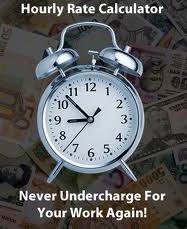 In today’s tough job market, many companies are reducing their full time employment job openings which are paid by annual salary in order to save headcount cost and be able to adapt more quickly to changing market conditions. Instead companies are hiring more contractors who are paid by hourly rate and has a defined contract period (e.g. 6 – 18 months). As a result, many job seekers are also seeking contractor positions in addition to full time employment in order to increase their chances.
In today’s tough job market, many companies are reducing their full time employment job openings which are paid by annual salary in order to save headcount cost and be able to adapt more quickly to changing market conditions. Instead companies are hiring more contractors who are paid by hourly rate and has a defined contract period (e.g. 6 – 18 months). As a result, many job seekers are also seeking contractor positions in addition to full time employment in order to increase their chances.
For these job seekers, a question naturally follows “What should be my hourly rate in a contract position?” The answer is it’s not as simple as converting your salary directly to an hourly rate. For example, if you make $80K in annual salary and works full time (which is about 2000 hours per year), does this mean your equivalent hourly rate converted from your salary should be ($80K/2K hours) $40/hr?
The answer is NO. If you only ask for $40/hr, you would have undersold yourself. This is because your hourly rate as a contractor should account for 3 factors that are different from a full time position who is paid a compensation package.
- Full time compensation package includes salary and benefits vs. hourly rate contract jobs do not have benefits – As a full time employee, your company will pay for the majority of your insurance premiums and the rest of the premium is paid with pretax dollars from your salary. In a contract situation, you are self employed and therefore would have to find your own health insurance. Individual health insurance cost at least 3 times more and has less coverage. Therefore, your hourly rate needs to account for that. The best scenario for you is if your spouse is a full time employee and you can get your health insurance there.
- Hourly rate contract jobs also incurs self-employment tax vs. full time employment do not – When you work as a contractor, you are considered self-employed and the government will charge you a 15% self employment tax in additional to other income taxes. Therefore, your hourly rate should be at least 15% more than your salary converted hourly rate. One way to offset the additional self employment tax is to deduct business expenses (e.g, computer used for contract work, % of your rent that is office space dedicated to working your contract, etc..) against your contract revenue. You should contact a tax consultant to find out all the legitimate business expenses you can deduct
- Down time cost between contracts– Contracts are typically from 6-18 months and many companies forces contractors to take a mandatory break after a set period to distinguish them from full time employees (e.g., must take 6 months off after contracting for 18 months at a company). Given contract job are typically shorter than full time employment, you need to account for that period between contracts where you are without income. To get around the mandatory break rule, you can always try to get a contract from another company during that time and switch between two or more companies to avoid any down time. To achieve this however requires you to network more and find work for yourself efficiently. In general, you have to look for contract work much more often than a full time job.
Therefore to convert your annual salary to an adequate hourly rate that takes into account the above 3 factors, you need to multiply your salary to hourly equivalent by a multiplier. This multiplier is somewhere between 1.5 to 2.5 depending on the industry and your skills in selling yourself into a contract. With the tough market, the multiplier is closer to 1.5 lately given there are many more people applying to contract work. With the example above, the salary hourly equivalent is $40 per hour. Adding the multiplier at 1.5, then the hourly rate you would want is at least $40 x 1.5 = $60 per hour to offset the risks and additional cost of working as a contractor.
I hope this helped. Best wishes in your job search and negotiations.
Like this post? Then help me share it on Google+, Linkedin, Twitter and elsewhere. For more advice to support your career success, sign up below for my email newsletter – How to Succeed like an Executive
Your comments: Did these tips help you figure out your fair hourly rate? I look forward to your comments below. Thanks. I am always in your corner.
Lei
Thanks for sharing your thoughts. I truly appreciate your efforts
and I am waiting for your next write ups thank you once again.